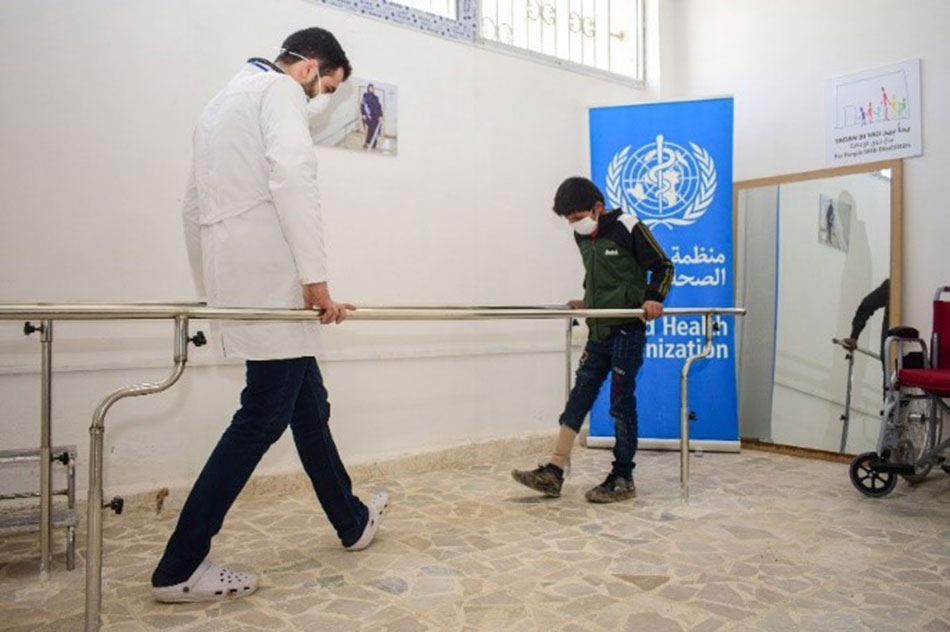
9 July 2021, Damascus – Persons with physical disabilities face many challenges, but even more so in a war-ravaged country like Syria, where a barrier-free environment for people with disabilities is merely not an option. Often physical disability leads to hardship as opportunities for employment are limited.
Hanano primary health care (PHC) centre in Aleppo is one of the very few centres in Syria that helps persons with disabilities to overcome the physical and psychological barriers to become more confident and empowered citizens. The centre collaborates with WHO, the United Nations Population Fund and United Nations Office for the Coordination of Humanitarian Affairs (OCHA) that support the efforts of the centre to provide the right tools and therapies to people with physical disabilities. The centre provides people in need with artificial limbs, wheelchairs, canes and crutches, and provides physiotherapy sessions at no cost for beneficiaries.
Unlike other PHC centres, Hanano goes one step further by employing persons with disabilities to manufacture artificial limbs on site within an extended section of the facility. Hanano can only maintain this self-sustaining model with the continued support of WHO, UNDP, OCHA and nongovernmental organizations.
Families across Aleppo have found hope at the centre through life-changing free physiotherapy sessions, artificial limbs and other aids that help people with disabilities regain confidence. The nongovernmental organization Yadn bi Yad (Hand in Hand) has been providing support at Hanano since 2018. It has registered 10 400 people with disabilities and provides services to 3500 community members each month. It also focuses on providing comprehensive trauma care management for persons with disabilities and patients with mental health needs, including the delivery of therapeutic rehabilitation sessions, and tailored vocational training to increase self-dependence and re-engagement as active and participatory members within the community.
With the adequate funding and support, and the engagement of more nongovernmental organizations, the Hanano cetre can support more people in need, and similar services can be replicated to serve people in other governorates of Syria.
Media contact
Gulalek Soltanova
External Relations/Communications Officer
WHO Syria Office
Damascus, Syrian Arab Republic
+963 953 888 477








